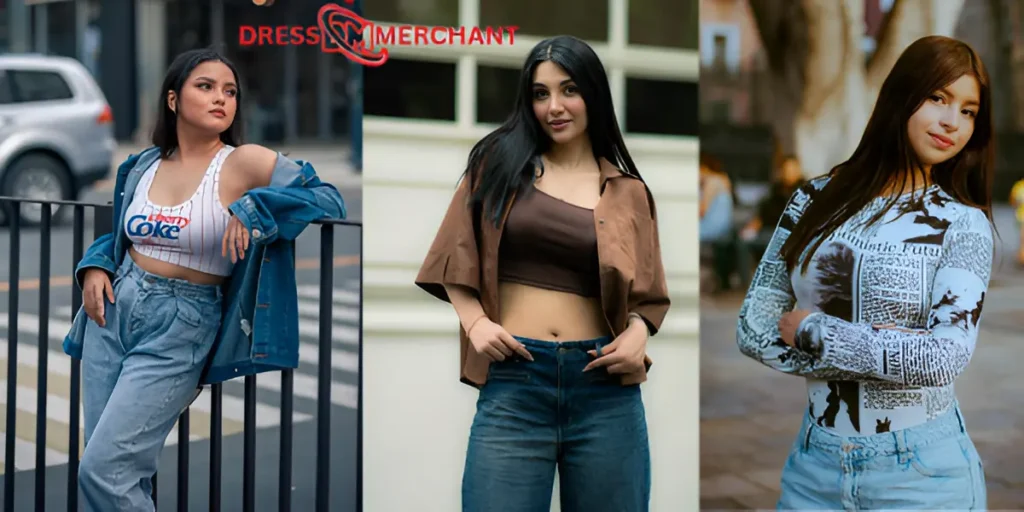Top Woven Garments Exporter in Bangladesh, Dress Merchant is a leading apparel buying agent providing expert sourcing, production, and export services. We connect global buyers with trusted manufacturers, ensuring quality, reliability, and timely delivery. As a reputed garments sourcing agent, our tailored solutions help brands scale efficiently while maintaining high standards in every stage of apparel manufacturing and export.
Thank you for reading this post, don't forget to subscribe!1. Overview of the Woven Garments Industry in Bangladesh
Bangladesh has emerged as a global leader in the woven garments industry, thanks to decades of growth, investment, and skilled labor. The country’s garment manufacturing sector contributes significantly to the national economy, making it one of the largest exporters of woven apparel worldwide. With thousands of factories dedicated to high-quality woven garment production, Bangladesh provides a robust supply chain that meets international standards.
The industry is driven by strong infrastructure, including industrial zones, export processing zones (EPZs), and advanced logistics networks. In addition, Bangladesh’s competitive labor market ensures cost-effective production without compromising quality, making it a preferred choice for global brands. The local government also supports export-oriented growth through trade incentives and compliance programs, further boosting the country’s position in the global apparel market.
Over the years, Bangladesh has developed specialization in various woven garments, from shirts, trousers, and jackets to formal wear and casual attire. This diversification allows exporters to cater to a wide range of markets, including Europe, North America, and Asia. Furthermore, innovation in fabric sourcing, cutting-edge machinery, and adherence to international quality standards have strengthened Bangladesh’s reputation as a reliable and efficient exporter of woven garments.
2. Why Bangladesh Leads as a Top Woven Garments Exporter
Bangladesh’s dominance in the woven garments market is attributed to a combination of cost efficiency, skilled workforce, and large-scale production capabilities. The country produces high-quality woven garments at competitive prices, attracting global buyers and brands looking for reliable supply partners.
The strong foundation of the garments manufacturing sector includes modern factories equipped with advanced machinery for cutting, stitching, and finishing woven fabrics. Exporters benefit from Bangladesh’s strategic location, which allows easy access to major shipping ports and international markets. Additionally, the government’s trade policies, including duty-free access under preferential trade agreements, have made Bangladeshi woven garments highly attractive globally.
Bangladesh’s reputation also stems from its commitment to ethical manufacturing practices. Many exporters comply with international labor standards, ensuring safe working conditions and sustainable production methods. This adherence not only strengthens the country’s global standing but also aligns with the growing demand for sustainable woven garments.
Furthermore, innovation in design, fabric quality, and production efficiency allows Bangladeshi exporters to meet diverse buyer needs, from high-volume bulk orders to niche premium collections. With these strategic advantages, Bangladesh continues to solidify its position as a top woven garments exporter in the global apparel industry.
3. Quality Standards and Compliance in Woven Garments Export
Maintaining high quality standards is crucial for Bangladesh’s woven garments exporters to remain competitive in the global market. International buyers expect consistent quality, precise measurements, durable stitching, and premium finishing. To achieve this, Bangladeshi exporters follow rigorous quality assurance processes, including fabric inspection, in-line production checks, and pre-shipment audits.
Compliance with international certifications such as ISO, WRAP, and BSCI has become a standard practice. These certifications ensure adherence to social, environmental, and ethical standards, which are increasingly demanded by buyers in Europe and North America. Additionally, exporters invest in modern machinery, skilled quality control teams, and digital monitoring systems to minimize errors and maintain high-quality output consistently.
The focus on sustainable and eco-friendly practices further enhances Bangladesh’s reputation. Exporters are incorporating energy-efficient production methods, recycling fabrics, and using non-toxic dyes to meet global environmental standards. By prioritizing both quality and compliance, Bangladesh continues to attract international buyers seeking reliable partners for woven garment sourcing.
A strong commitment to quality management not only reduces returns and defects but also strengthens buyer trust, fostering long-term business relationships. Consequently, Bangladesh remains a leading destination for premium woven garments, combining competitive pricing with exceptional quality standards.
4. Key Export Destinations for Bangladeshi Woven Garments
Bangladesh’s woven garments industry serves a wide range of international markets, making it a global export hub. Europe remains one of the largest destinations, particularly countries like Germany, the United Kingdom, and France, where high-quality woven garments are in strong demand. North America, including the United States and Canada, also contributes significantly to export revenues due to a consistent demand for durable and fashionable apparel.
Asian markets such as Japan, South Korea, and China are emerging as key buyers for Bangladeshi woven garments. These markets value the combination of affordability, quality, and adherence to international fashion trends. Additionally, Bangladesh’s woven garments exports have penetrated niche markets in Australia and the Middle East, where buyers prefer tailored, premium products.
Global buyers increasingly demand sustainable and ethically-produced garments, and Bangladesh’s exporters are adapting accordingly. By integrating green production processes, maintaining labor compliance, and delivering on-time shipments, exporters ensure consistent satisfaction across international destinations.
Bangladesh’s strategic shipping routes, proximity to ports, and efficient logistics networks reduce lead times, making it an ideal woven garments sourcing destination for international buyers. As a result, Bangladesh continues to expand its global footprint and solidify its position as a trusted partner in the global apparel industry.
5. Innovative Manufacturing Techniques in Woven Garments
Bangladesh’s woven garments sector has embraced innovative manufacturing techniques to stay competitive in the global market. Advanced machinery for automated cutting, computerized pattern making, and precise stitching has transformed production efficiency, reducing labor costs while maintaining superior quality.
Modern factories employ techniques such as zero-defect stitching, automated embroidery, and digital fabric printing, which enhance design flexibility and meet global fashion trends. Additionally, lean manufacturing principles have been integrated to optimize workflow, minimize waste, and reduce production lead times.
Bangladeshi exporters also focus on customized production for international buyers, offering services like made-to-order garments, special fabric treatments, and personalized embroidery. This innovation ensures that clients receive unique products tailored to their brand requirements.
Furthermore, investment in research and development has allowed woven garment exporters to experiment with sustainable fabrics, recycled materials, and high-performance textiles. By combining technology with craftsmanship, Bangladesh delivers products that satisfy both quality and environmental standards.
With these modern manufacturing techniques, Bangladesh continues to attract global brands seeking efficient, innovative, and high-quality woven garment production.
6. Top Bangladeshi Woven Garments Export Companies to Know
Several Bangladeshi companies have established themselves as leaders in the woven garments export industry. These exporters are recognized for their consistent quality, adherence to international standards, and timely delivery of large-scale orders. Companies like DBL Group, Pacific Jeans, and Square Textiles are prominent examples that dominate both regional and global markets.
These exporters offer a wide range of woven garments products, from casual shirts and trousers to formal office wear and high-end fashion pieces. Many have invested in modern infrastructure, skilled workforce, and advanced quality control systems to meet the expectations of global buyers.
Certification in ISO, WRAP, and SA8000 standards enhances credibility and ensures compliance with labor and environmental regulations. Moreover, these companies emphasize sustainable practices, such as eco-friendly dyeing, waste reduction, and energy-efficient manufacturing processes.
International buyers trust these top exporters due to their transparent communication, efficient logistics, and ability to handle bulk orders. Their commitment to innovation, quality, and reliability reinforces Bangladesh’s global reputation as a leading exporter of woven garments.
7. Sustainability and Eco-Friendly Practices in Woven Garments Export
Sustainability has become a central focus for Bangladesh’s woven garments exporters, as global buyers increasingly demand eco-conscious production. Exporters are adopting green manufacturing practices, including water recycling, energy-efficient machinery, and the use of organic fabrics.
Certifications such as OEKO-TEX, GOTS, and WRAP assure buyers that garments are produced under environmentally responsible and socially ethical conditions. Many exporters also integrate recycled fabrics and non-toxic dyes to reduce environmental impact while maintaining high-quality output.
Sustainable practices not only protect the environment but also enhance the brand image of exporters in global markets. Buyers prefer sourcing from suppliers who demonstrate corporate social responsibility and a commitment to ethical labor practices.
Bangladesh’s emphasis on sustainability ensures long-term competitiveness in the global apparel industry. By combining eco-friendly methods with advanced technology and skilled craftsmanship, exporters can deliver garments that meet modern consumer expectations while contributing to a greener future.
8. Challenges Faced by Woven Garments Exporters in Bangladesh
Despite its success, Bangladesh’s woven garments exporters face challenges such as infrastructure limitations, compliance pressures, and global competition. Logistics bottlenecks, energy shortages, and delays in port operations can impact timely delivery, affecting buyer confidence.
Maintaining compliance with international labor standards, safety regulations, and environmental norms is essential but can be resource-intensive. Additionally, global market fluctuations, currency variations, and competition from countries like Vietnam and India pose strategic challenges for Bangladeshi exporters.
To address these issues, exporters invest in modern factories, skilled workforce training, and advanced technology. They also focus on diversifying export markets and enhancing supply chain efficiency to mitigate risks.
By proactively managing these challenges, Bangladesh continues to sustain its reputation as a reliable woven garments sourcing destination, providing consistent quality and competitive pricing to international buyers.
9. The Role of Technology in Enhancing Woven Garments Production
Technology plays a pivotal role in Bangladesh’s woven garments export industry. Automated cutting machines, digital pattern-making software, and computer-aided stitching systems enhance precision and reduce production time.
Data-driven quality control systems monitor production lines in real time, minimizing defects and ensuring consistent standards. Technologies such as 3D garment simulation, fabric testing machines, and RFID tracking improve both design accuracy and supply chain transparency.
Exporters also leverage ERP and inventory management software to optimize logistics, reduce waste, and meet tight delivery schedules. By integrating technology at every stage of production, Bangladesh ensures efficient, cost-effective, and high-quality woven garment manufacturing.
This technological adoption reinforces Bangladesh’s position as a leading global woven garments exporter, capable of catering to the complex demands of international fashion brands.
10. Future Trends and Opportunities in Woven Garments Export from Bangladesh
The future of Bangladesh’s woven garments export industry is promising, with emerging trends in sustainable fashion, smart textiles, and digital manufacturing. Global buyers increasingly demand eco-friendly products, and Bangladeshi exporters are responding with innovative fabrics and ethical production practices.
Investment in automation, AI-driven design, and advanced logistics will further enhance productivity and reduce lead times. There is also a growing opportunity in niche markets such as premium formal wear, performance fabrics, and customized apparel for global brands.
Bangladesh’s strategic location, cost-effective production, and skilled workforce position it well to capture these opportunities. By embracing innovation, sustainability, and market diversification, exporters can continue to expand their global footprint and maintain their status as top woven garments exporters.
Conclusion: Top Woven Garments Exporter in Bangladesh
In conclusion, Bangladesh has firmly established itself as a global hub for high-quality woven garments, offering competitive pricing, skilled craftsmanship, and timely delivery. As a trusted apparel sourcing agent, Dress Merchant plays a pivotal role in connecting international buyers with the top woven garments exporters in Bangladesh, ensuring that every order meets global standards of quality, compliance, and design excellence.
Our deep industry expertise, extensive network of reliable manufacturers, and commitment to transparency allow us to provide seamless sourcing solutions tailored to each client’s unique needs. By choosing Dress Merchant as your garments buying house, you gain access to premium woven garment collections, efficient production timelines, and a partner dedicated to fostering long-term business success.
With Bangladesh’s thriving textile industry and Dress Merchant’s professional guidance, international brands and retailers can confidently achieve superior product quality, cost-effective production, and timely market delivery.






























